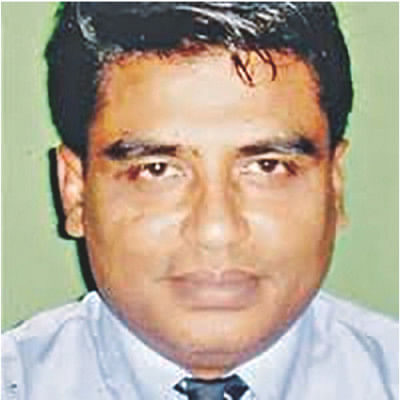New law underway to improve healthcare quality at private hospitals

The government is framing a new law with the view to improving the quality of healthcare services in private hospitals and clinics in Bangladesh, said a top official of the Directorate General of Health Services (DGHS).
"We expect that there will be improvement in healthcare services after the enactment of the new law," said Md Aminul Hasan, director for hospital at the DGHS.
Standards of service delivery will be fixed and licences will not be issued unless the hospitals comply with the criteria. Licences will also not be renewed.
The move comes as the number of private hospitals and clinics in the country is increasing since public hospitals struggle to meet the growing demand for healthcare.
And the existing law, Medical Practice and Private Clinics and Laboratories (Regulation) Ordinance, 1982, falls short of expectations for quality medical care among treatment-seekers, a glaring example of that is reflected by the number of making patients' regular trips abroad, particularly to India, Thailand and Singapore.
"There is no shortage of equipment. There is, somehow, confidence crisis among people. We are trying so that the quality of healthcare improves and people get the belief that there is no need to go abroad for treatment."
In Bangladesh, private healthcare facilities have sprung up driven by demand as the number of public hospitals and the number of beds are not enough to provide healthcare to the growing population.
"Naturally, public hospitals are failing to accommodate. As a result, private organisations are automatically taking this opportunity and are trying to do business by operating commercially."
Despite the expansion of the sector, the law has remained unchanged although it faces limitations in ensuring better quality healthcare services.
Under the current law, none can set up hospitals without getting licence from the DGHS.
It grants the approval by examining the location of hospital, the number of doctors, nurse and other support staff in comparison with the number of beds and machinery and equipment as well as environment.
The law requires health officials to visit hospitals and clinics every year before renewing licences. The DGHS has also directed civil surgeons to visit hospitals every quarter to make sure the facilities are complying with licencing rules.
The law has also fixed the ratio of doctors and nurses against hospital beds. "Yet, there is no way out to measure or say whether the hospitals are providing quality services," he said, adding that the new law will create the scope for ensuring quality healthcare services.
The new law has been sent to the cabinet division.
Monitoring of hospitals will be strengthened too, according to Hasan.
In order to do so, the DG Health is also trying to draw up new organograms with sufficient workforce, he said, adding that the number of hospitals is so high that the government does not have enough people to monitor and supervise all of them.
"We are trying to increase the workforce to ensure better monitoring."
The DG Health has taken an initiative to raise the number of doctors, nurses, staff and equipment and the number of beds.
Apart from framing a new law, the agency has also stepped in to fix the prices of similar services provided by private hospitals and clinics, particularly for those that operate outside of Dhaka.
"Similar services will have similar prices. We are working to ensure uniformity in pricing at the upazila and district levels."
Currently, the DGHS is not working on the charges of services offered by hospitals in Dhaka city.
"Because, there are many corporate hospitals and their rates can't be compared easily with the rates of the hospitals outside of Dhaka."
The investment put in by the corporate hospitals is higher and they have expanded the areas of services delivery.
"However, we will work on the corporate hospitals in Dhaka later on."
The DGHS director also talked about his office's move to frame a separate law for accreditation of hospitals as a mark of their healthcare quality.
"There will be an autonomous and voluntary board for hospital accreditation. The board will give accreditation."
Accreditation is not mandatory and it is voluntary all around the world except for a few countries.
If a hospital wants to be accredited, it can and the government can't force it.
"What the government can do is to impose minimum criteria for everyone to operate hospitals. Without complying with the criteria, none can operate. But if a hospital chooses to get an accreditation for further improvement, it can be accredited."

 For all latest news, follow The Daily Star's Google News channel.
For all latest news, follow The Daily Star's Google News channel. 



Comments